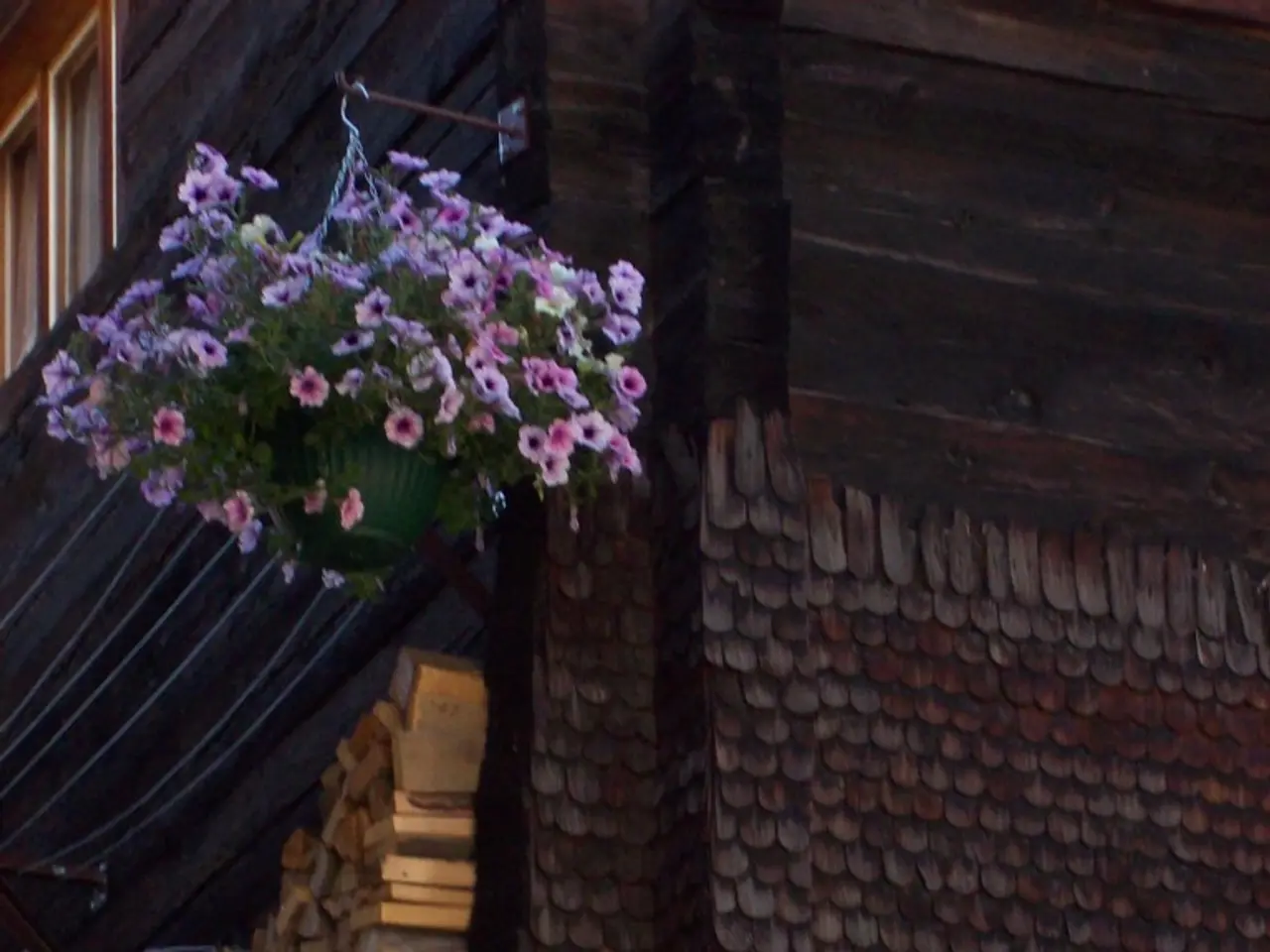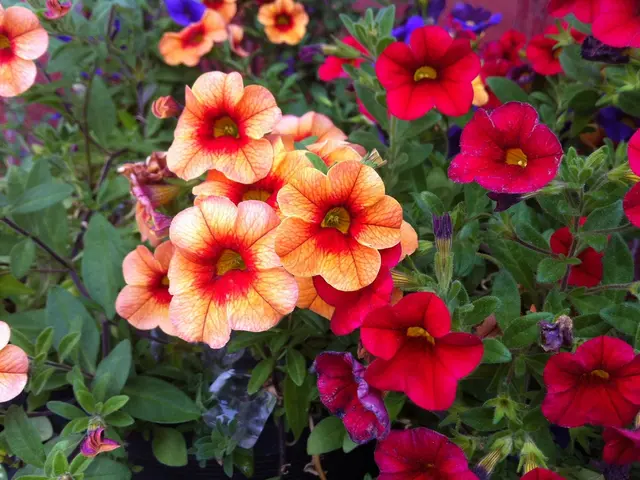Homes Enhancements Suggested by Experts: Top 10 Trees to Boost Property Value
A well-planned garden can significantly increase a property's value, and one of the most effective ways to achieve this is by strategically planting trees. Here's a guide to some of the most popular and beneficial tree species for your garden.
Fruit trees, such as lemon and orange trees, apple trees, plum trees, and cherry trees, not only add aesthetic appeal but also increase a property's value. These trees, when mature, can provide a bountiful harvest and offer a touch of nature's bounty to your garden. However, it's essential to keep the area around the tree clean during harvest season to prevent rotting fruits and nuts from attracting pests.
Mature oak trees are highly valued in real estate for their longevity and strength. Their large canopies offer extensive shade, reducing cooling costs in the summer. Oak trees are a great choice for properties looking to enhance their curb appeal and offer shade and privacy for residents.
For smaller yards, consider the desert willow. This gorgeous tree has non-invasive roots and fairly compact proportions, growing up to 30ft tall and 25ft wide. Its vibrant blooms add a splash of colour to your garden.
Flowering dogwood is another excellent option, particularly in the spring. Its amazing blossom features bright flowers that can produce shades of white, pink, and even red.
Crepe myrtle is a stunning tree that offers year-round interest with colorful flowers and peeling barks. Japanese maple trees are especially known for their vibrant fall colors, ranging from bright reds to deep purples.
For those living in USDA hardiness zones 4-9, plum trees are suitable for growing outdoors. Apple trees are best grown in zones 4 to 7, but there are zone 9 apple varieties for warmer areas, and cold hardy apples suitable for zone 3. Magnolia trees produce stunning flowers in spring to early summer and can be grown in zones 7 through 9. There are also hardy magnolias that survive winters in zone 6 and 5.
Lemon and orange trees can be grown outdoors in USDA zones 9-11, but in cooler zones, they can be grown in pots. These citrus trees not only add a tropical touch to your garden but also contribute to a property's ecological value, helping to clean the air and provide a home for local wildlife.
The Japanese lilac tree has a more subtle yet pleasing aroma, flowers in early summer, and is suitable for zones 3-7. Eastern redbud trees are a fantastic option for small yards, growing up to 20-30ft tall and 15-35 feet wide. The yaupon holly is a multifaceted plant that provides privacy, shade, and a beautiful natural feature, and is hardy in USDA zones 7b through 9.
Cherry trees are another top pick for a beautiful landscaping tree, but their roots can be invasive. Hence, it's essential to consider the tree's growth pattern and potential impact on your property before planting.
Good landscaping, including trees, can increase a home's value by as much as 15%. So, choose tree species known for their aesthetic appeal, shade provision, and environmental benefits, such as oak, maple, or fruit trees, to enhance curb appeal and offer climate regulation benefits. Trees contribute to a property's ecological value, helping to clean the air and provide a home for local wildlife. Therefore, consider planting trees not just for their aesthetic value but also for the positive impact they have on our environment.
Read also:
- Impact of Alcohol on the Human Body: Nine Aspects of Health Alteration Due to Alcohol Consumption
- Understanding the Concept of Obesity
- Tough choices on August 13, 2025 for those born under Aquarius? Consider the advantages and disadvantages to gain guidance
- Microbiome's Impact on Emotional States, Judgement, and Mental Health Conditions








